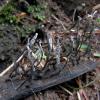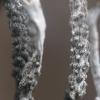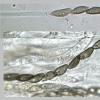
14-01-2026 10:02
Hulda Caroline HolteHello, These ascomycetes were growing on standing

13-01-2026 10:13
 Danny Newman
Danny Newman
Cordieritidaceae sp. on indet. wood w/ Hypoxylon s

13-01-2026 07:57
 Danny Newman
Danny Newman
cf. Bombardia on indet. decorticate woodAppalachia

14-01-2026 07:28
 Danny Newman
Danny Newman
Nemania sp. on indet. decorticate woodAppalachian

12-01-2026 22:02
Ethan CrensonHello all, I am hoping someone will have some ins

11-01-2026 20:35
Hello.A very tiny pyrenomycete sprouting sparsely

13-01-2026 18:55
Rees CronceStrossmayeria sp. on indet. decroticate hardwoodTh

13-01-2026 07:28
 Danny Newman
Danny Newman
Chlorociboria glauca on indet. decorticate logThe

13-01-2026 07:14
 Danny Newman
Danny Newman
Neodasyscypha cerina on indet decorticate logThe S

13-01-2026 09:10
 Danny Newman
Danny Newman
Dasyscyphella chrysotexta on indet. decorticate ha
Xylaria from ethiopia
Uwe Lindemann,
02-12-2008 21:38
at the end of september 2008 I found in addis abeba (ethiopia) a Xylaria.
Macroscopic features:
Stromata gregarious, unbranched, clavata narrow cylindric, 25-55 x 0,5-1 mm with sterile apices; stipe distinct, smooth, half of the clavata; subiculum sparseley setose, brown; perithecia , evident, globose, ostioles papillate
Microscopic features:
Ascus with 8 ascospores, 110-120 x 5,5-6,5 μm
Ascospores brown, germ slit straight, with hyalin appendage, elliptic to navicular with narrow ends, 10-11,5(13) x 4-4,8 μm (appendage: 1,5-2 x 1 μm)
In my opinion it is Xylaria gracillima. Could that be correct?
I used the following studies to determine the species:
DENNIS, R. W. G. (1961): Xylarioideae and Thamnomycetoideae of Congo. Bulletin du Jardin Botanique National de Belgique 31: 109-154.
DENNIS, R. W. G. (1962): Xylarioideae and Thamnomycetoideae. Flore Iconographique des Champignons du Congo. 11. Fasc.
HLADKI, A. I. & ROMERO, A. I. (2007): Primeras citas del género Xylaria (Ascomycota, Xylariaceae) para la república Argentina. Darwiniana 45(1): 28-44.
MARTIN, P. (1970): Studies in the Xylariaceae VIII: Xylaria and its allies. Journal of South African Botany 36: 73-138.
ROGERS, J. D. & CALLAN, B. E. & ROSSMAN, A. Y. & SAMUELS, G. J. (1988): Xylaria (Sphaeriales, Xylariaceae) from Cerro de la Neblina, Venezuela. Mycotaxon 31 (1): 103-153.
Thank you very much for your help!
Uwe
Jacques Fournier,
02-12-2008 22:23

Re:Xylaria from ethiopia
Hi Uwe,
nice to see people collecting Xylarias during their free time!
Your description is very accurate and allows a tentative answer. Xylaria gracillima is a controversial name and used in different senses by Dennis and Rogers.
According to the latter (Mycotaxon 34, pp 283-373, available on Cyberliber) X. gracillima lacks a white peeling outer layer as shown on your photos and has "naked" (superficial) perithecia scattered along a filiform rachis. Moreover, ascospores are not said to have cellular appendages.
In his description, Dennis (1961) illustrates a stroma resembling your fungus but does not mention a white coating and gives ascospores size range as 9-10.5 x 3-4, a bit small to match yours.
I think X. microceras (Mont.) Fr. might be a possible name for your fungus, known from neotropics. It is shortly described by Dennis (1956), but without mention of the cellular appendages. Otherwise it imight be an unknown taxon, which would not be surprising for Ethiopia!
I would love to see your collection, maybe I would get more inspiration. In return I can help you with literature on Xylaria.
Cheers,
Jacques
nice to see people collecting Xylarias during their free time!
Your description is very accurate and allows a tentative answer. Xylaria gracillima is a controversial name and used in different senses by Dennis and Rogers.
According to the latter (Mycotaxon 34, pp 283-373, available on Cyberliber) X. gracillima lacks a white peeling outer layer as shown on your photos and has "naked" (superficial) perithecia scattered along a filiform rachis. Moreover, ascospores are not said to have cellular appendages.
In his description, Dennis (1961) illustrates a stroma resembling your fungus but does not mention a white coating and gives ascospores size range as 9-10.5 x 3-4, a bit small to match yours.
I think X. microceras (Mont.) Fr. might be a possible name for your fungus, known from neotropics. It is shortly described by Dennis (1956), but without mention of the cellular appendages. Otherwise it imight be an unknown taxon, which would not be surprising for Ethiopia!
I would love to see your collection, maybe I would get more inspiration. In return I can help you with literature on Xylaria.
Cheers,
Jacques


